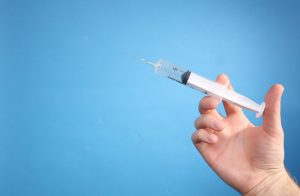Intrauterine insemination is the well-known artificial insemination. This is a widely used fertilization method in which sperm that have been previously chosen and selected are injected into the uterus with the aim of conception occurring. Because it is a relatively simple procedure, it is common for many specialists to recommend artificial insemination for couples with not so severe infertility problems. Thus, it is generally recommended for young women and men who have simple infertility issues. 
How Does Intrauterine Insemination Work?
Initially, for intrauterine insemination to be possible, a couple’s evaluation must be carried out. In this evaluation, the medical history of both partners is reviewed, as well as other relevant tests such as checking the level of ovarian reserve in the woman and the semen analysis to examine the man’s sperm. After this initial evaluation, the following steps are performed:
- Ovarian stimulation: the woman usually takes ovulation inducers to ensure that the eggs develop properly and, consequently, that the procedure has a higher chance of success.
- Ultrasound and induction: ultrasounds are performed to check the development of the eggs and, when they reach the ideal size, maturation is induced through an HCG injection.
- Semen collection: semen is collected on the day of insemination so the laboratory can examine and prepare the sample using the best sperm to maximize the chances of fertilization.
- Insemination: when everything is ready, the collected semen is introduced through the vaginal canal. Anesthesia is not necessary, as it is a painless procedure.
Advantages of the Procedure
Among the advantages, we can mention that it is a cheaper procedure and also much simpler. In general, IUI has no contraindications and it is precisely for this reason that many specialists recommend it as a first treatment option for simpler infertility cases.
Disadvantages of the Procedure
Because only the healthiest sperm are implanted, and not the embryo itself, the chance of conception is almost the same as with natural conception, since fertilization of the egg may not occur inside the woman’s body. Additionally, many specialists do not recommend performing more than 3 consecutive attempts of artificial insemination, as it is assumed after this number that insemination will not occur. See also: How Long Does Sperm Survive in the Body and Outside of It?











